PRESS RELEASE
Background
Local communities continue to experience the power of digital connectivity. As a result, freedom to access and share information has greatly been enhanced. However, concerns abound around potentially harmful content propelled by emerging technologies such as hate speech, disinformation and misinformation are not new. Social media platforms and governments have employed content moderation practices and laws respectively in an effort to regulate vast amounts of content generated online and in compliance with set out international human rights standards. It is noteworthy that UNESCO has recently published the Guidelines for Digital Platforms[1] and it is leading global engagements on the Draft Code of Ethics for the Information Society[2] which addresses the freedom of expression challenges posed by content moderation.
Communication and Technology innovations as well as systems are moving forward rapidly so much so that persons with disabilities are being excluded from the whole digital era evolution due to the lack of integration of assistive technology. At the same time, it is alarming that persons with disabilities risk being excluded by new information communication technologies. Assistive technologies, ICTs accessibility standards and inclusion of persons with disabilities in the digital world are some of the issues being overlooked despite having the relevant legislative frameworks that ensure and promote a barrier-free technological environment thus exacerbating the digital divide. Kenya ratified the Protocol to the African Charter on Human and Peoples Rights on the Rights of Persons with Disabilities in Africa[3] and became the first country in Africa to enact ICT Accessibility Standards.[4] But the fight for inclusive technologies should not stop there. Opportunities exist for more advocacy for disability mainstreaming in technology innovation[5] especially now that digitalization is taking root in critical government service delivery.
Call to action
In order to reap the digital dividends and other internet’s limitless possibilities, local communities should be empowered to identify and tackle potentially harmful content. At the same time, digital technologies must be designed with persons with disabilities in mind. Recognizing the potential dangers of online hate speech and disinformation, UNESCO and ARTICLE 19, launched the Social Media 4 Peace. This EU-funded initiative targets post-conflict countries to build resilience against potentially harmful online content. The project focuses on promoting peace through digital technologies, particularly social media, by establishing multistakeholder coalitions. In Kenya, the National Coalition on Freedom of Expression and Content Moderation (hereinafter “FeCoMo) was established to bring together tech stakeholders, academia, government, think tanks and civil society organizations to foster collaboration in addressing online harmful content, particularly disinformation and hate speech while safeguarding freedom of expression.
However, there exist knowledge gaps at FeCoMo. Therefore, ARTICLE 19 Eastern Africa and the National Council for Persons with Disabilities with the support of UNESCO will be holding a 2-and-a-half-day workshop on Disability Mainstreaming, Content Moderation and Freedom of Expression. Following the training, participants will be empowered to;
- Strengthen the capacities of FeCoMo members with appropriate skills and knowledge to ensure the application of the basic principles of disability mainstreaming in exercising their duties.
- Actively participate in the development of strategies, policies, activities, and advocacy campaigns aimed towards content moderation in relation to Disability.
- Advocate for a human right-centered approach to content moderation,
- Understand the roles and human rights responsibilities of social media companies, to uphold freedom of expression while mitigating the spread of harmful content and ensure adherence to international human rights standards.
[1] https://unesdoc.unesco.org/ark:/48223/pf0000387339
[2] https://unesdoc.unesco.org/ark:/48223/pf0000187196
[3] https://www.socialprotection.go.ke/dsd-achievements
[4] https://dig.watch/updates/accessibility-for-ict-products-and-services-for-persons-with-disabilities-standard-launched-in-kenya
[5] https://thedocs.worldbank.org/en/doc/123481461249337484-0050022016/original/WDR16BPBridgingtheDisabilityDividethroughDigitalTechnologyRAJA.pdf
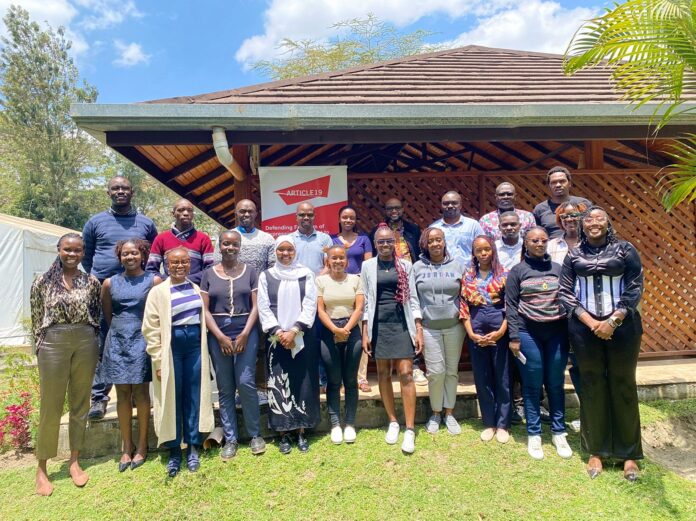

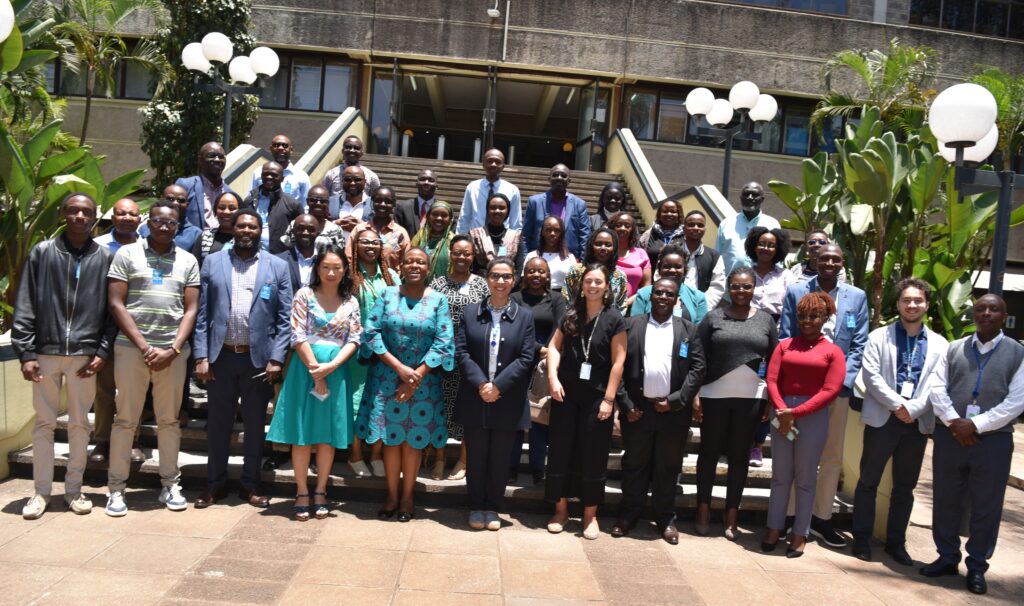
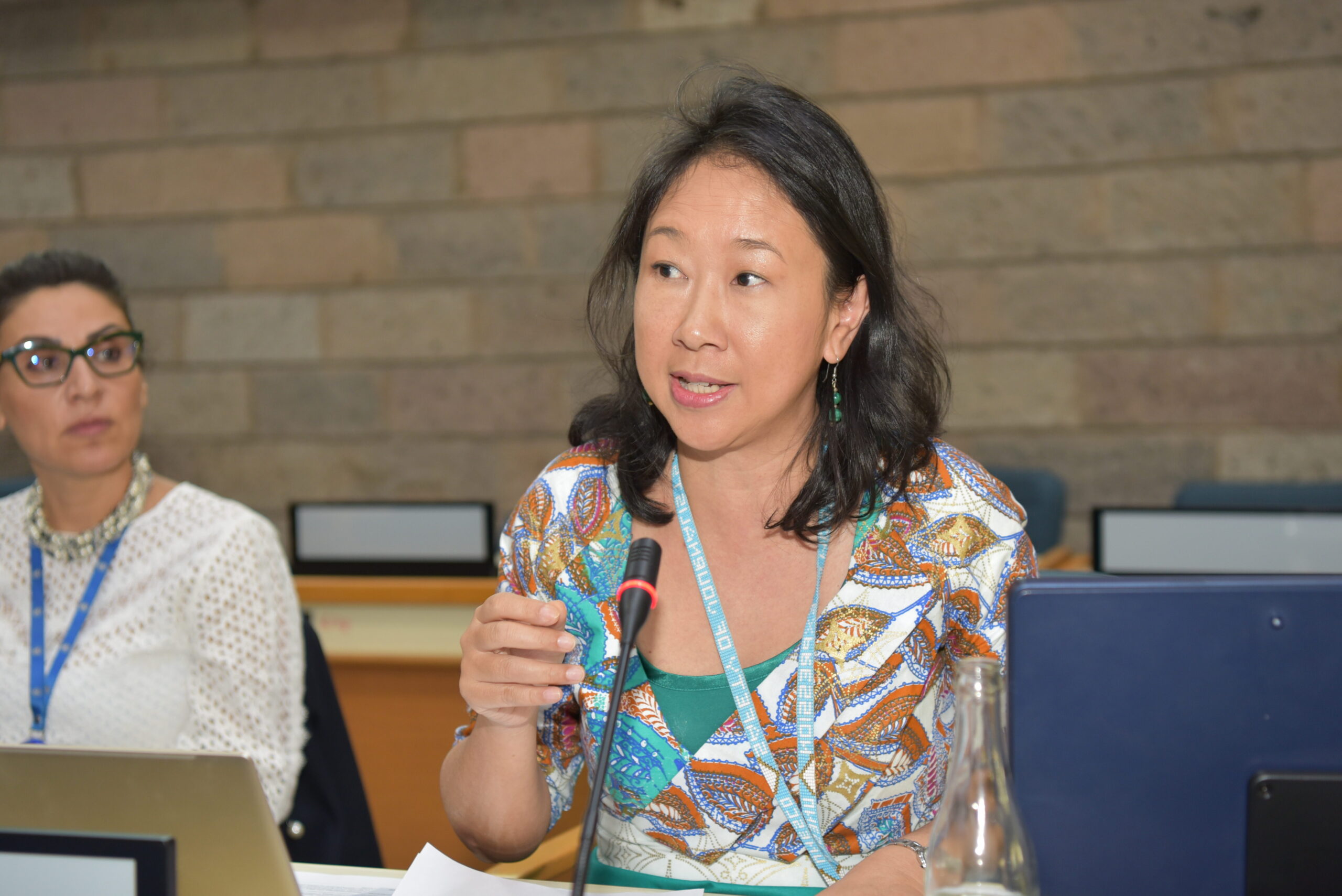
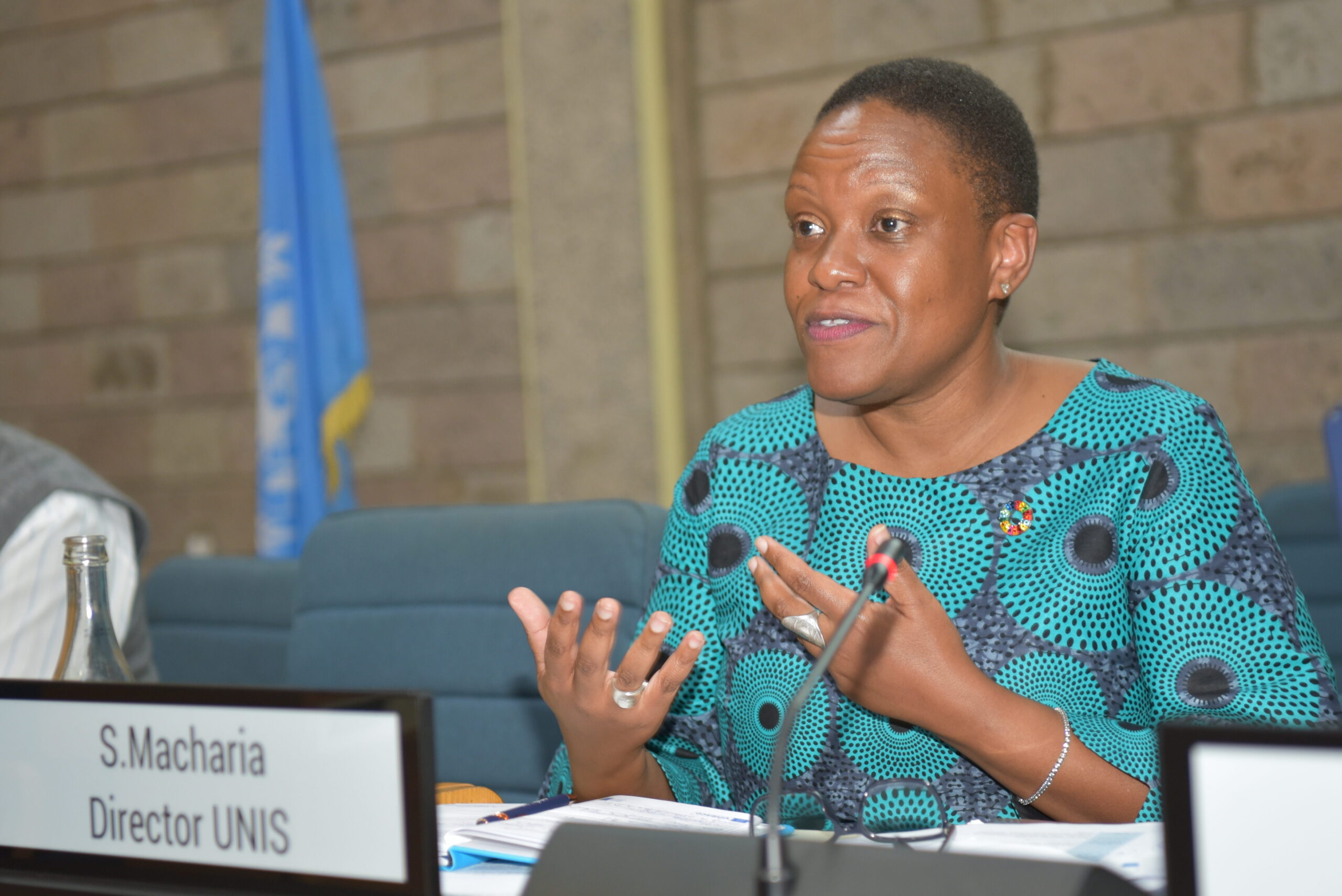
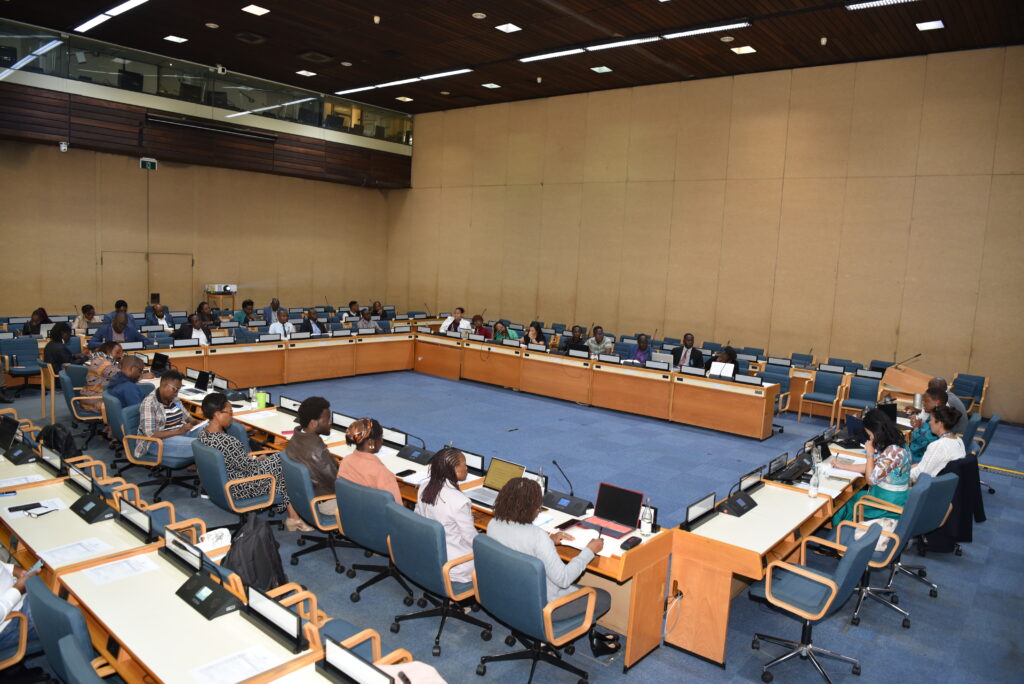
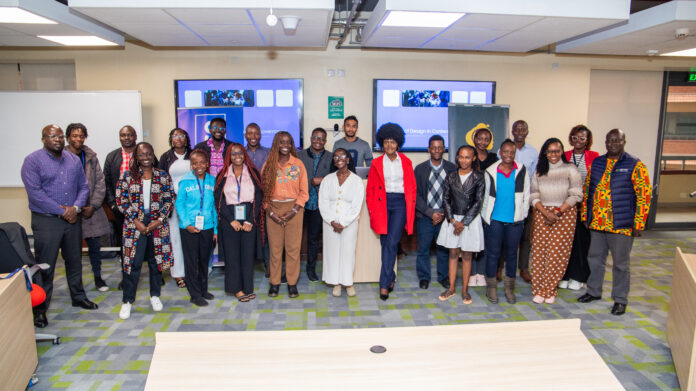
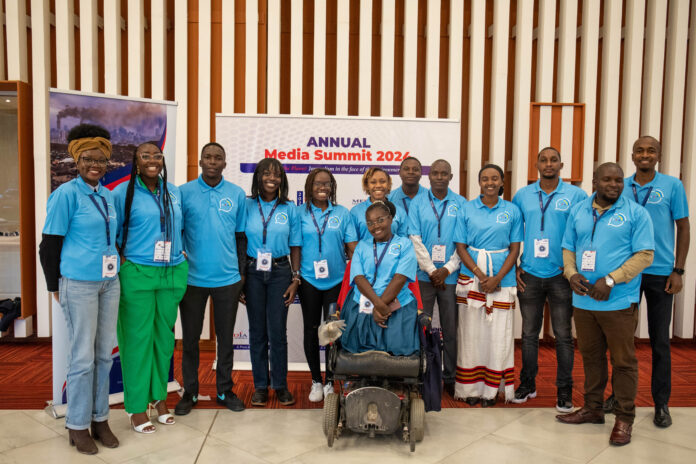
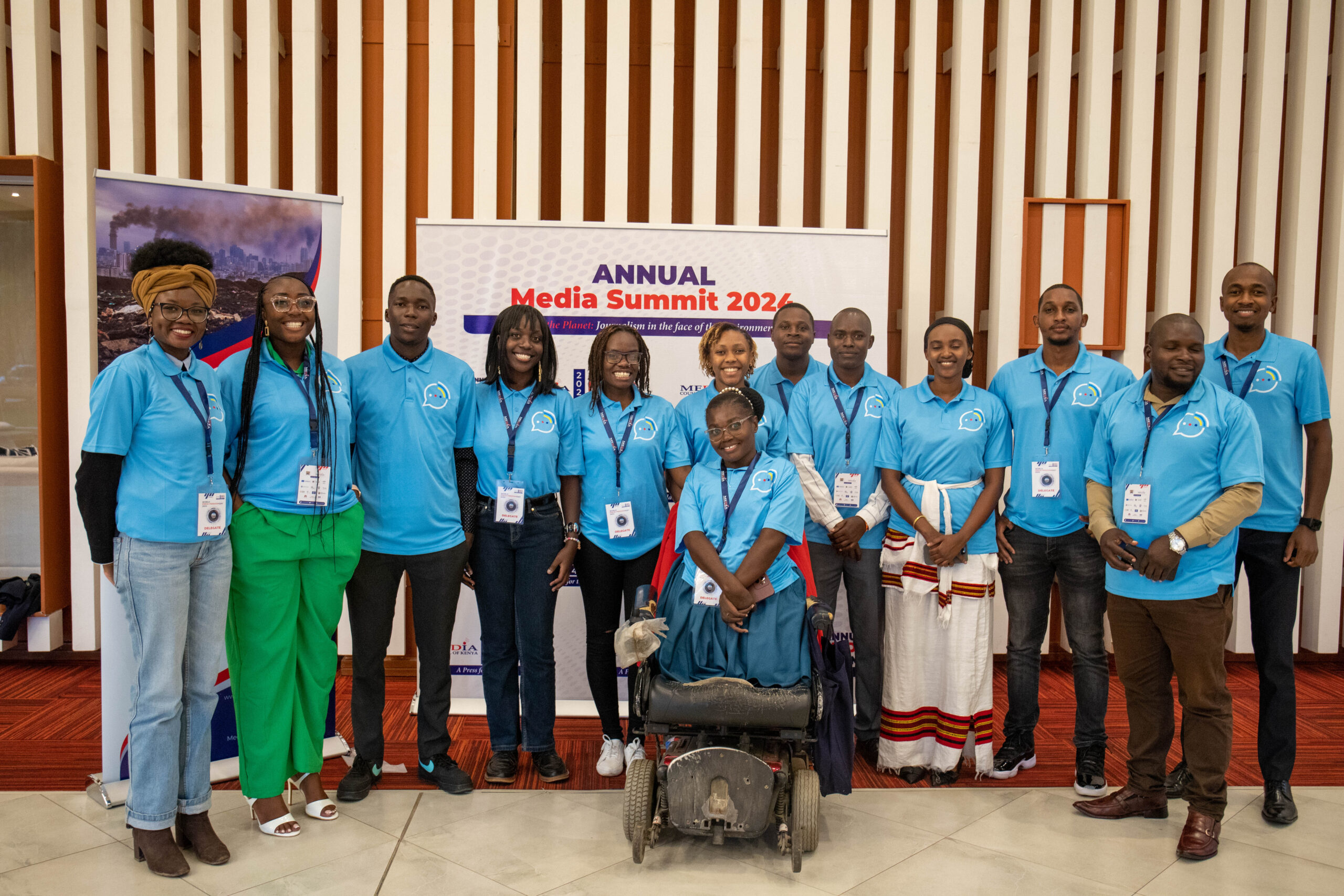 This World Press Freedom Day, 11 young climate reporters form the first ever Kenya Youth Multimedia Room to #StandwithPressFreedom amidst the current climate crisis. Composed of climate journalists, storytellers, content creators, filmmakers, entrepreneurs and radio presenters, the Youth Multimedia Room aims to cover Kenya’s national celebrations and amplify #WPFD2024’s call to protect freedom of environmental journalists.
This World Press Freedom Day, 11 young climate reporters form the first ever Kenya Youth Multimedia Room to #StandwithPressFreedom amidst the current climate crisis. Composed of climate journalists, storytellers, content creators, filmmakers, entrepreneurs and radio presenters, the Youth Multimedia Room aims to cover Kenya’s national celebrations and amplify #WPFD2024’s call to protect freedom of environmental journalists.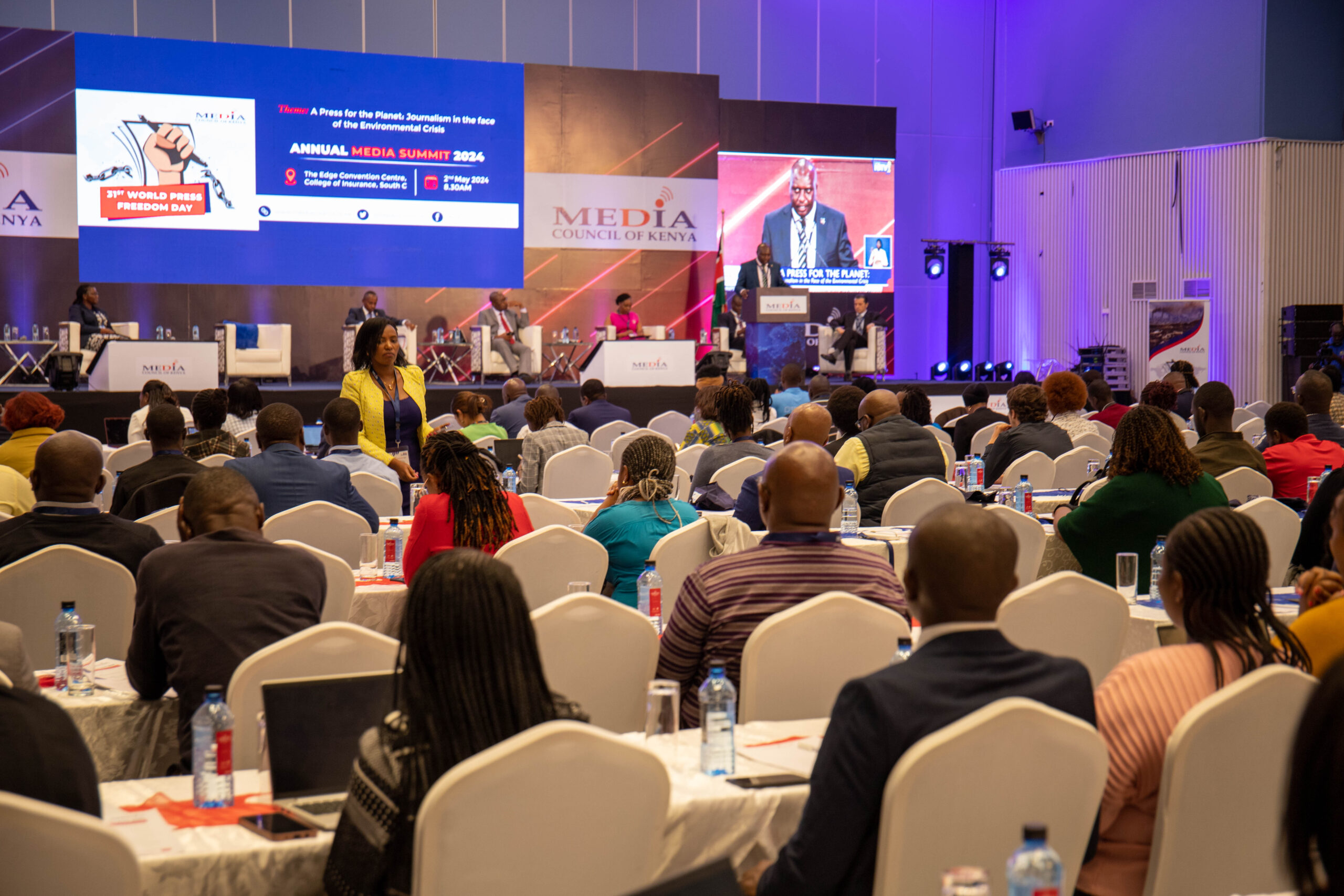 In K
In K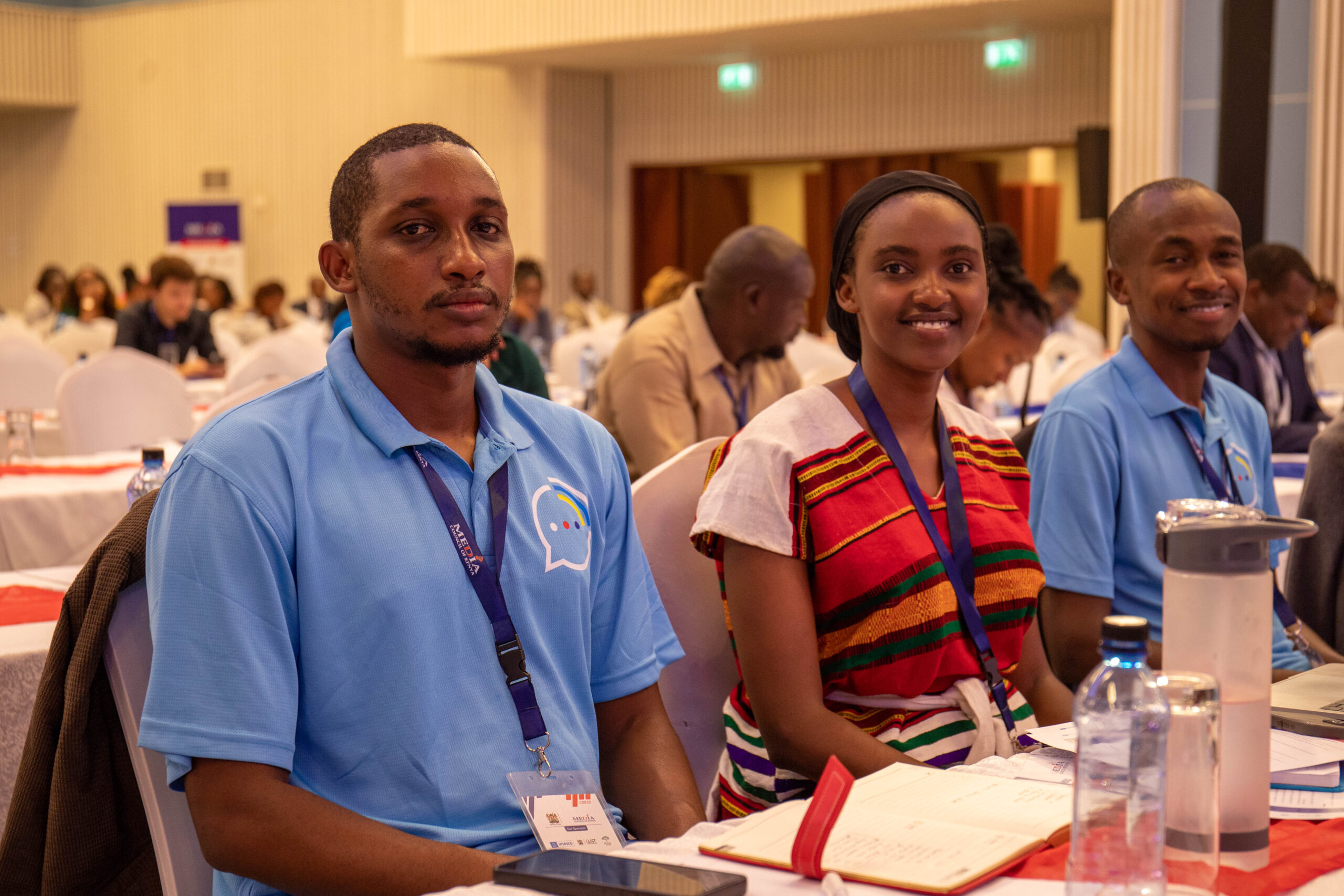 The youth reporters join us from all walks of life and all parts of Kenya. Zamzam Bonayo (centre) and her brother, Hussein Bonayo (left), have travelled 8 hours by bus from Marsabit, a county in Northern Kenya, to be part of this press movement for the planet. At their organisation, Northern Vision, Zamzam and her brother weave storytelling and climate activism to cultivate peace, resilience and hope in marginalized communities to aspire for a just and sustainable future.
The youth reporters join us from all walks of life and all parts of Kenya. Zamzam Bonayo (centre) and her brother, Hussein Bonayo (left), have travelled 8 hours by bus from Marsabit, a county in Northern Kenya, to be part of this press movement for the planet. At their organisation, Northern Vision, Zamzam and her brother weave storytelling and climate activism to cultivate peace, resilience and hope in marginalized communities to aspire for a just and sustainable future.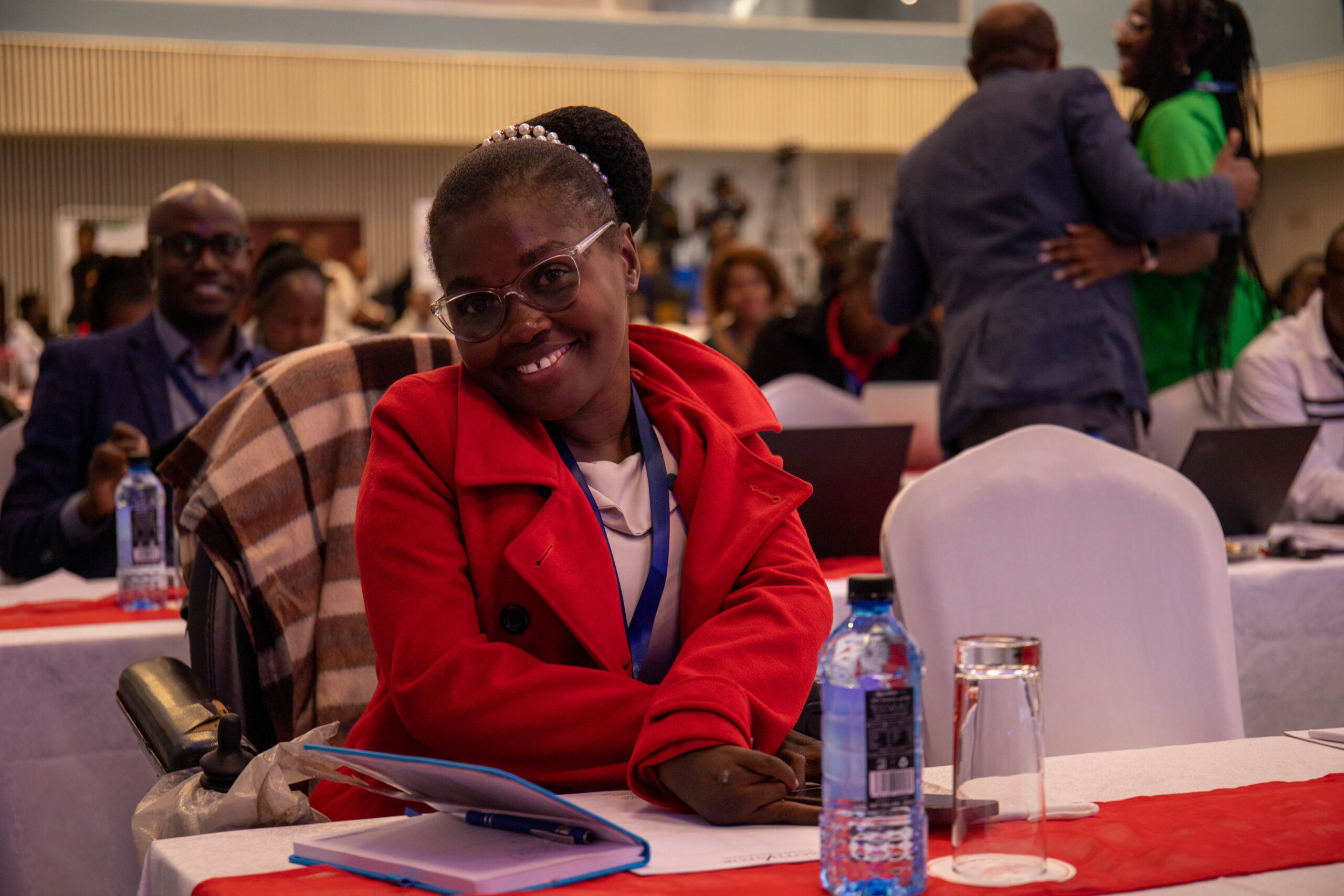 Linah Mbeyu Mohamed is a journalist with a cause: she wants to show that persons with disability are limitless when given an opportunity in society. As part of the Youth Multimedia Room, she keenly collects audio interviews and collaborates with other youth reporters to co-create quality coverage of the event and related issues.
Linah Mbeyu Mohamed is a journalist with a cause: she wants to show that persons with disability are limitless when given an opportunity in society. As part of the Youth Multimedia Room, she keenly collects audio interviews and collaborates with other youth reporters to co-create quality coverage of the event and related issues.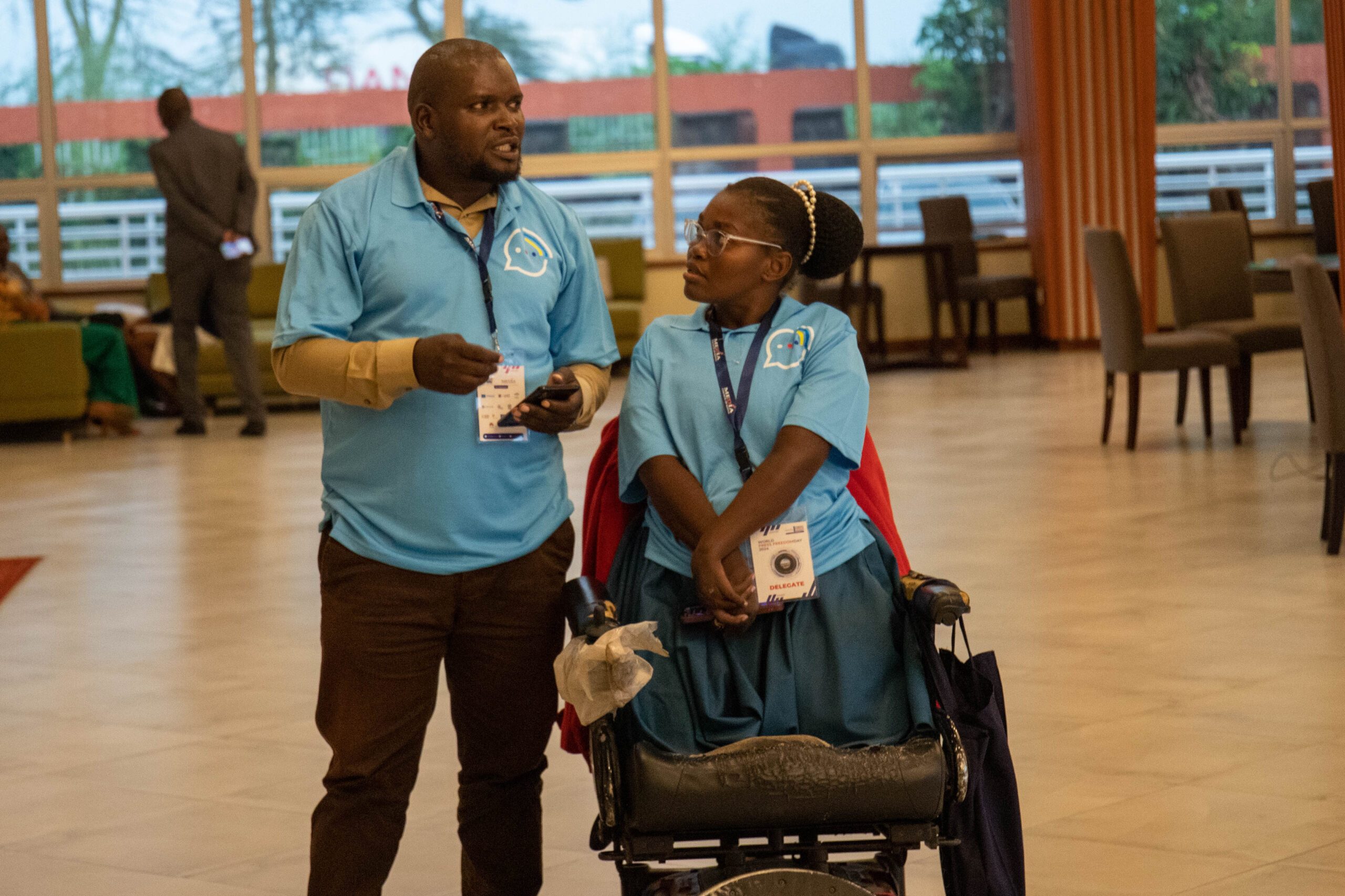 Next to her, Kamadi Amata from Mtaani Radio represents the community media fraternity as a Radio Editor and popular morning show host. Previously, Kamadi led a radio campaign to sensitive communities to the importance of building ‘Amani’ (peace) online under UNESCO’s Social Media 4 Peace project. Today, he is here to raise his community’s awareness on the importance of a free press to combatting climate mis- and disinformation.
Next to her, Kamadi Amata from Mtaani Radio represents the community media fraternity as a Radio Editor and popular morning show host. Previously, Kamadi led a radio campaign to sensitive communities to the importance of building ‘Amani’ (peace) online under UNESCO’s Social Media 4 Peace project. Today, he is here to raise his community’s awareness on the importance of a free press to combatting climate mis- and disinformation.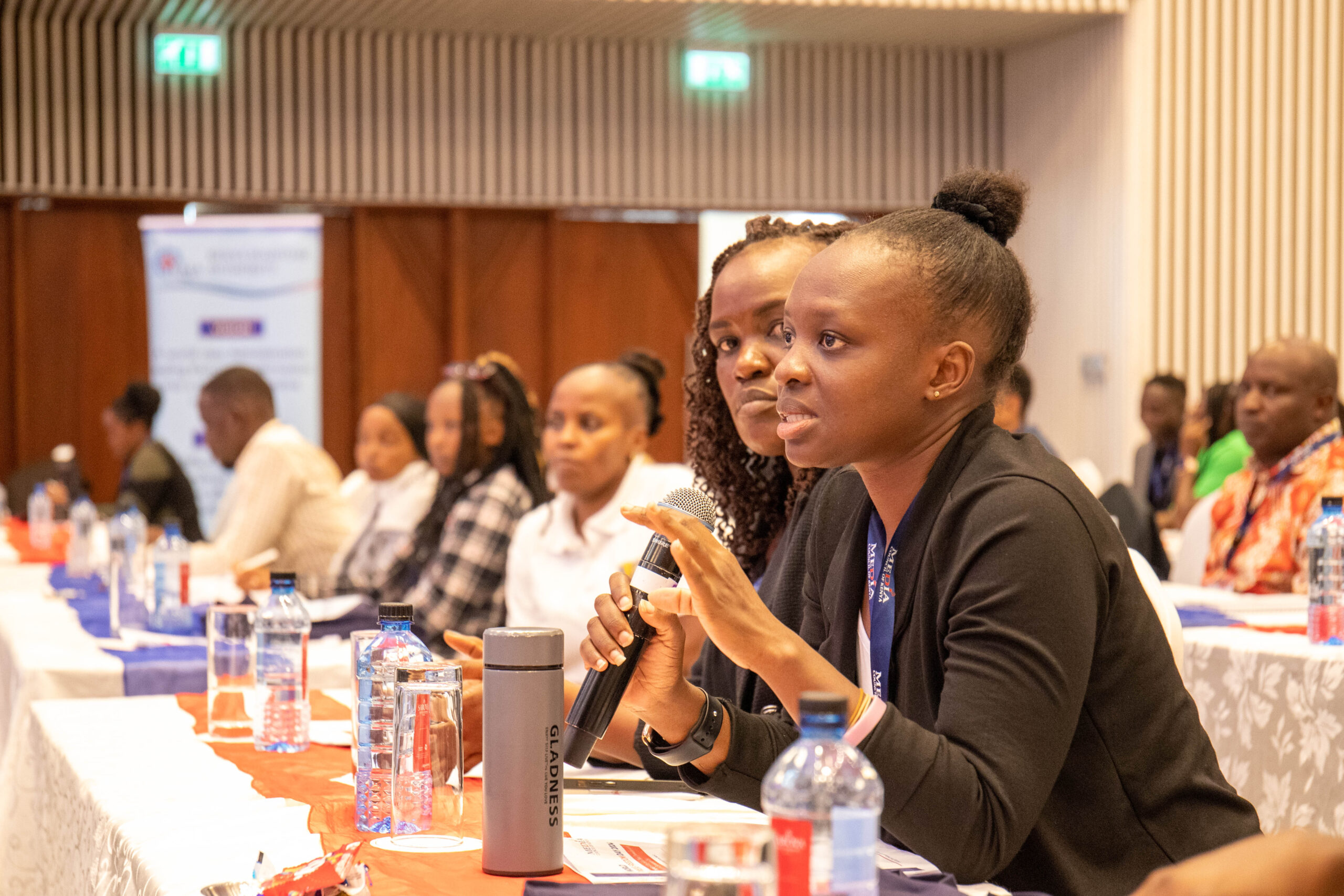 Members of the National Coalition on Freedom of Expression and Content Moderation in Kenya (FECoMo) are also present at the conference. Dr. Ruth Owino (Kabarak University) and Susan Wafula (National Council for Persons with Disability) call for the press to address and report on the climate crisis with intention and urgency.
Members of the National Coalition on Freedom of Expression and Content Moderation in Kenya (FECoMo) are also present at the conference. Dr. Ruth Owino (Kabarak University) and Susan Wafula (National Council for Persons with Disability) call for the press to address and report on the climate crisis with intention and urgency.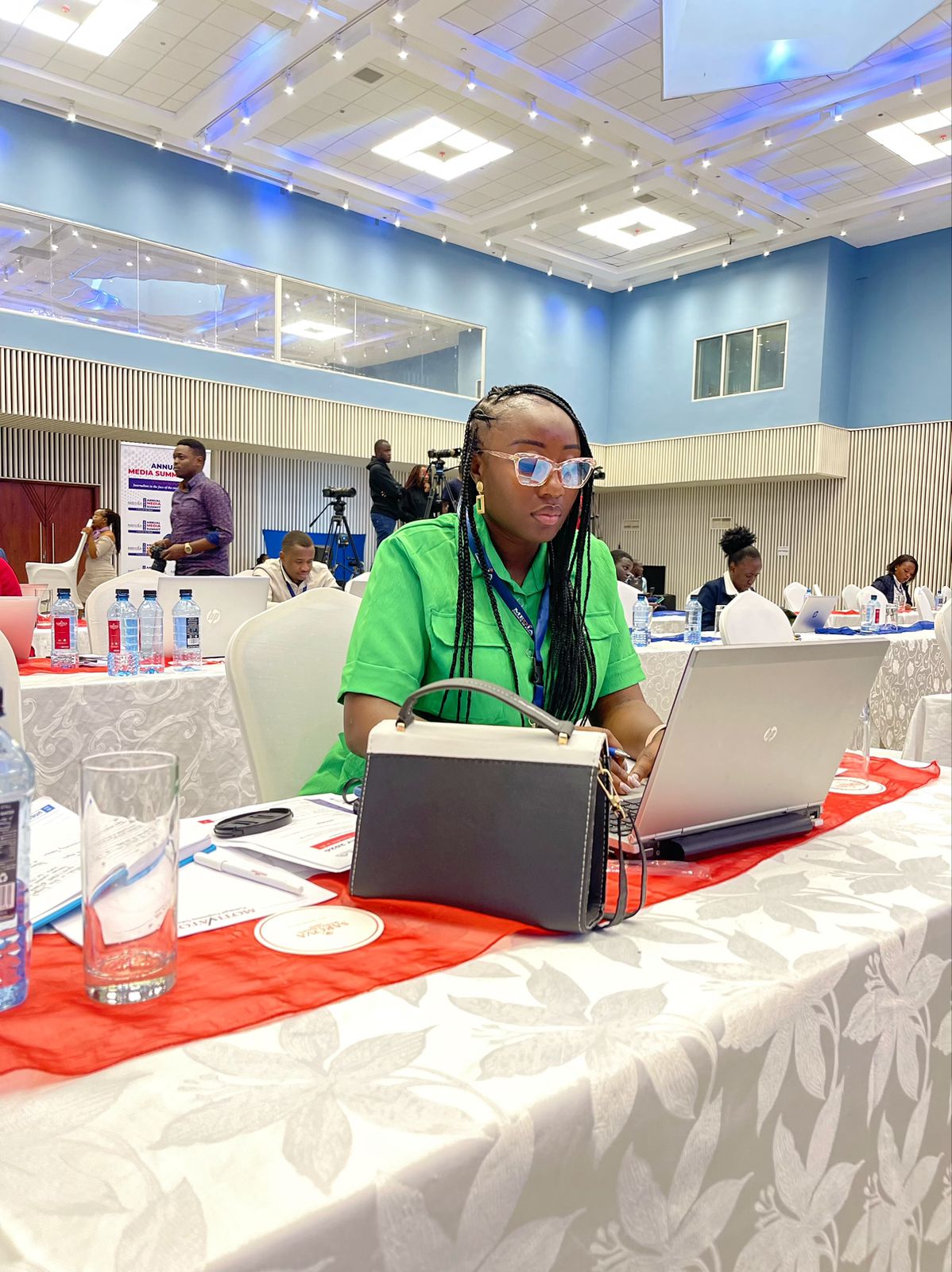 FECoMo’s capable advocacy leads are also on the ground as Youth Multimedia Room coordinators. Immaculate Onyango (National Steering Committee on Peacebuilding and Conflict Management) steers the Youth Multimedia’s Rooms operations. She hustles around all day, coordinating videography ad interview requests and making connections between Youth Reporters to foster content collaborations.
FECoMo’s capable advocacy leads are also on the ground as Youth Multimedia Room coordinators. Immaculate Onyango (National Steering Committee on Peacebuilding and Conflict Management) steers the Youth Multimedia’s Rooms operations. She hustles around all day, coordinating videography ad interview requests and making connections between Youth Reporters to foster content collaborations.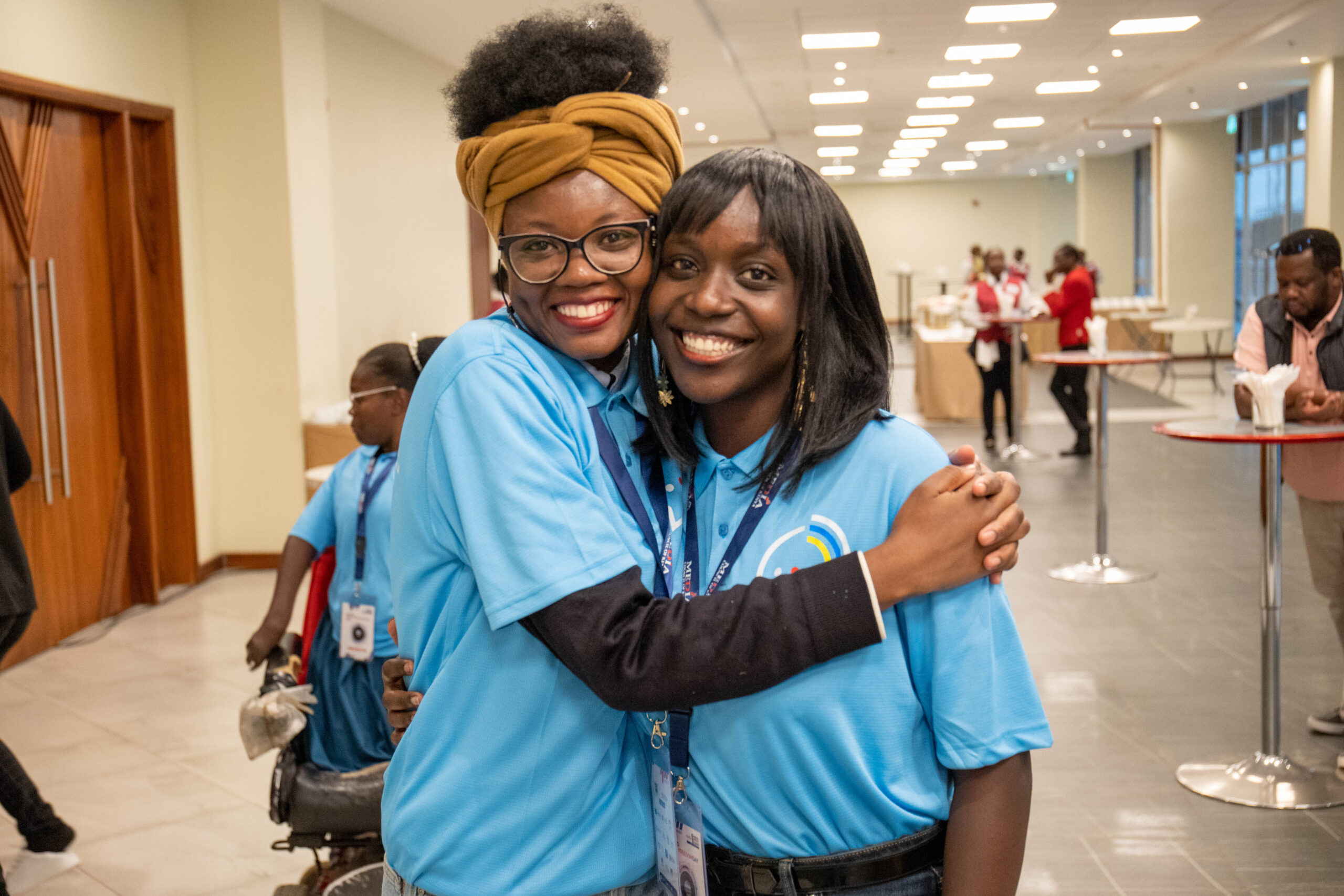 Viola Konji (Pwani Teknowgalz) (right) is another FECoMo associate co-coordinating the newsroom. While not posting messages and photos to FECoMo socials, she also looks after the well-being of the Youth Newsroom. Next to her, foreign policy analyst and medical practitioner Tevivona Ayien is exploring the nexus between health and the environment at this year’s climate-focused conference.
Viola Konji (Pwani Teknowgalz) (right) is another FECoMo associate co-coordinating the newsroom. While not posting messages and photos to FECoMo socials, she also looks after the well-being of the Youth Newsroom. Next to her, foreign policy analyst and medical practitioner Tevivona Ayien is exploring the nexus between health and the environment at this year’s climate-focused conference. The Youth Multimedia Room reporters work around the clock to ensure strong coverage of #WPFD2024 messages. Nelson Juma (in blue) is at work collecting perspectives with a tripod and camera at hand. As a filmmaker with 8 years of directing, cinematography, producing, and editing under his belt, Nelson’s expertise supports the Youth Multimedia Room in ensuring that #PressFreedom narratives are captured and curated for a wider audience. Photographs featured in this photo journal essay are taken by Nelson.
The Youth Multimedia Room reporters work around the clock to ensure strong coverage of #WPFD2024 messages. Nelson Juma (in blue) is at work collecting perspectives with a tripod and camera at hand. As a filmmaker with 8 years of directing, cinematography, producing, and editing under his belt, Nelson’s expertise supports the Youth Multimedia Room in ensuring that #PressFreedom narratives are captured and curated for a wider audience. Photographs featured in this photo journal essay are taken by Nelson.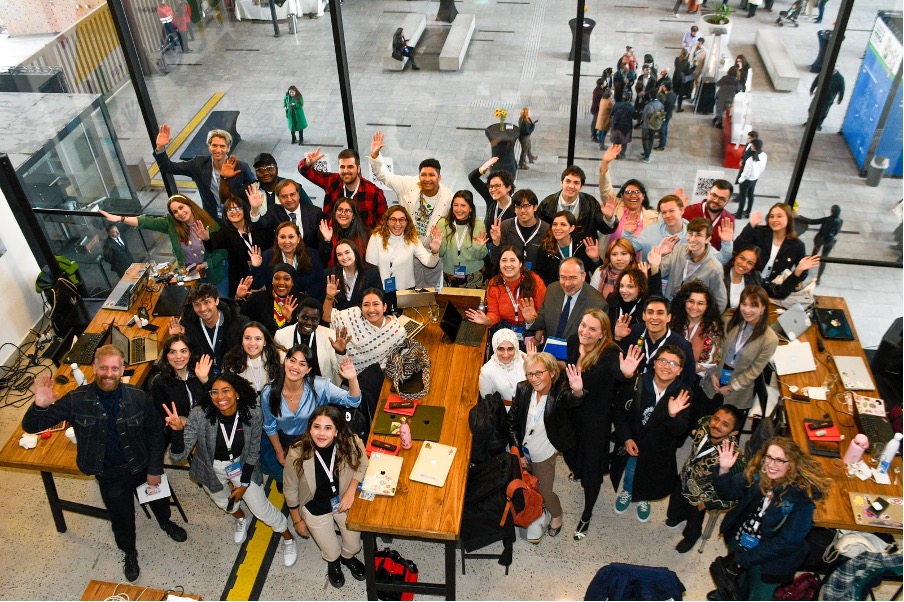 This inaugural Kenya Youth Multimedia Room mirrors a long-standing global initiative at the Global UNESCO World Press Freedom Day Conference. Each year, young journalists from across the world are identified to be a part of UNESCO Global Youth Newsroom (renamed ‘Multimedia Room’ to reflect today’s diverse media landscape), where they are trained and supported to produce engaging coverage on UNESCO’s WPFD Celebrations.
This inaugural Kenya Youth Multimedia Room mirrors a long-standing global initiative at the Global UNESCO World Press Freedom Day Conference. Each year, young journalists from across the world are identified to be a part of UNESCO Global Youth Newsroom (renamed ‘Multimedia Room’ to reflect today’s diverse media landscape), where they are trained and supported to produce engaging coverage on UNESCO’s WPFD Celebrations.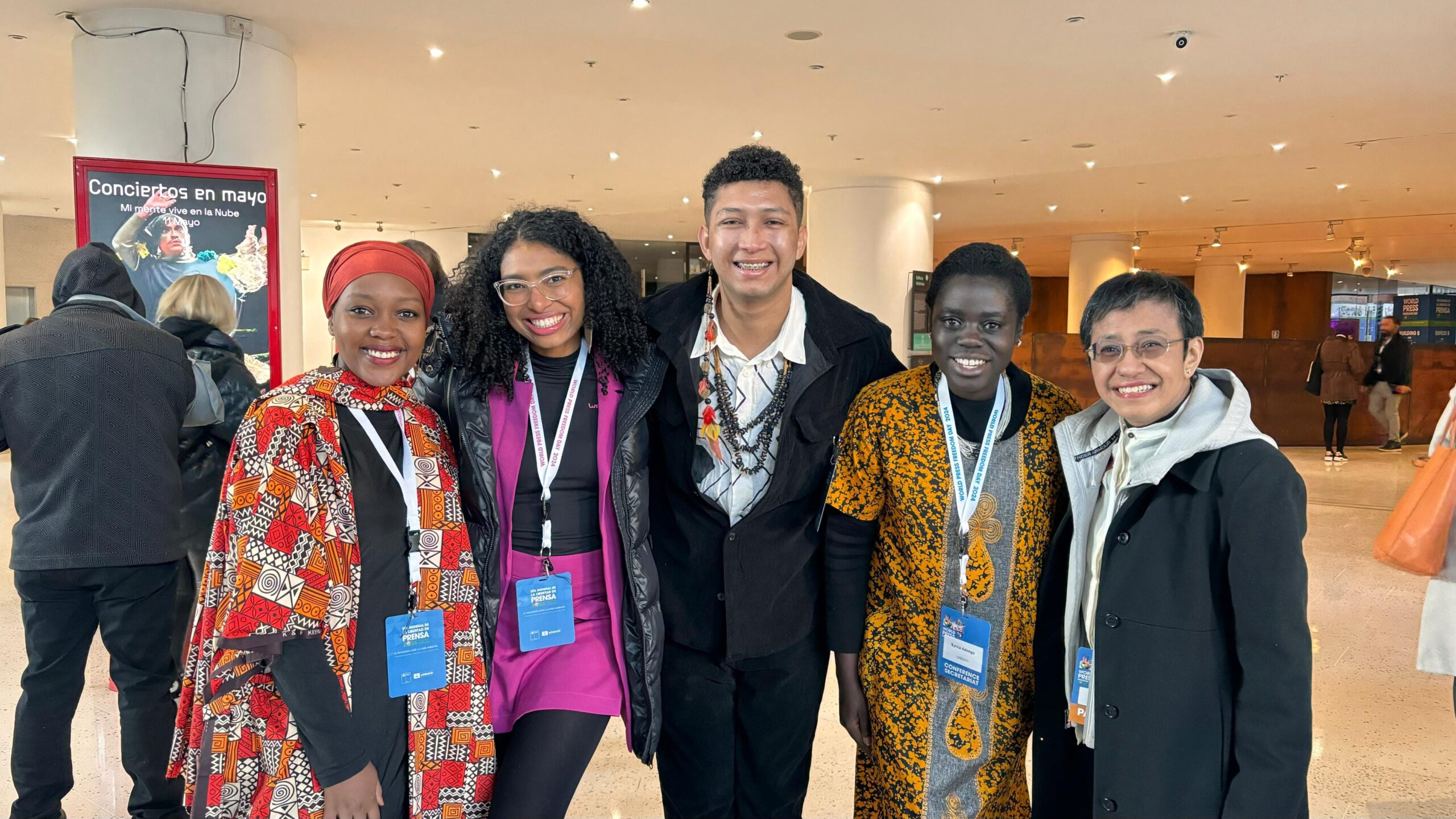 2024 also marks the first time that Kenya is represented at the global UNESCO Youth Multimedia Room. Attending the conference in Santiago, Chile are Shampi Ana (left) and Sylvia Adongo (2nd from right), who join the UNESCO Youth Multimedia Room as representatives from Kenya’s Social Media 4 Peace project.
2024 also marks the first time that Kenya is represented at the global UNESCO Youth Multimedia Room. Attending the conference in Santiago, Chile are Shampi Ana (left) and Sylvia Adongo (2nd from right), who join the UNESCO Youth Multimedia Room as representatives from Kenya’s Social Media 4 Peace project.



























